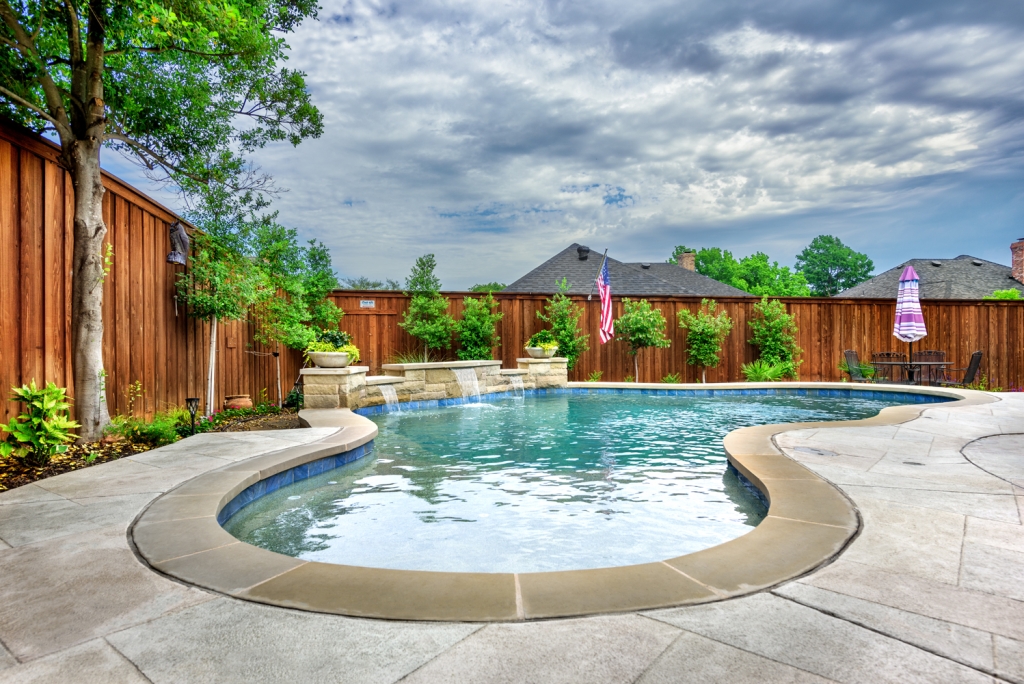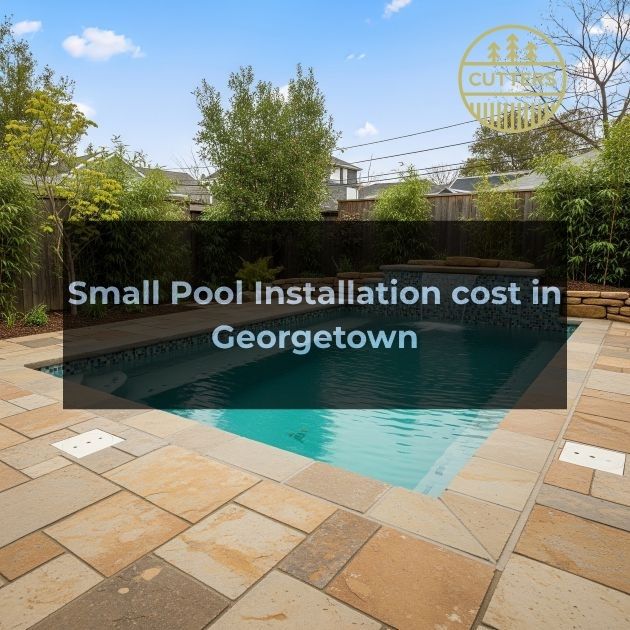Choosing the right pool shape is one of the most exciting and important decisions you’ll make when designing your dream backyard oasis. The shape of your pool not only influences the aesthetic and ambiance of your outdoor space but also affects functionality, maintenance, and overall enjoyment.
Whether you’re planning a sleek modern pool or a fun, family-friendly backyard feature, choosing the right pool shape is key. In this blog, our Austin-based pool experts walk you through everything you need to know to select the ideal shape for your space and lifestyle
Why Pool Shape Matters
Your pool shape will define how the pool fits into your backyard, complements your home’s architecture, and fulfills your needs. Here are a few reasons why the pool shape matters:
- Functionality – Shapes can be optimized for activities like lap swimming, relaxing, or play.
- Aesthetics – The right shape enhances your landscaping and property style.
- Space Efficiency – Tailoring the shape to your backyard layout maximizes usable space.
- Budget – Some shapes are more cost-effective due to simpler construction.
Factors to Consider Before Choosing a Pool Shape
1. Backyard Size and Layout
Evaluate the available space. A small or narrow yard might be better suited for a plunge pool or a lap pool, while larger yards can accommodate more elaborate designs like freeform or lagoon-style pools.
Tip: Sketch your backyard or get a professional layout done to visualize how different pool shapes will fit.
2. Purpose of the Pool
Think about how you’ll use the pool most often:
- Lap swimming or fitness? Go with a rectangular or lap pool.
- Relaxation and aesthetics? Consider a freeform or kidney-shaped pool.
- Entertaining guests? Look into L-shaped or Roman pools with integrated seating areas.
- Family fun? A figure-8 or freeform pool allows space for both kids’ play and adult relaxation.
3. Architectural Style of Your Home
The pool should complement your home’s design:
- Modern or contemporary homes often pair well with geometric shapes like rectangles or squares.
- Traditional homes may look better with oval, Roman, or kidney-shaped pools.
Rustic or natural landscapes match well with freeform pools that mimic nature’s curves.
4. Landscaping and Surroundings
Incorporate your pool into your existing landscaping plan. Freeform pools blend beautifully with natural gardens and rock features, while rectangular pools match well with formal landscaping and clean lines.
5. Budget and Construction Cost
Custom-shaped pools like freeform or L-shaped designs tend to be more expensive due to increased labor and material needs. If you’re on a tighter budget, stick with standard shapes like rectangles or ovals.
Popular Pool Shapes and Their Benefits
✔️ Rectangular Pool
- Clean, classic lines
- Great for lap swimming
- Easy to cover and maintain
- Ideal for modern homes
✔️ Kidney-Shaped Pool
- Gentle curves offer a natural look
- Excellent for small backyards
- Adds visual interest
✔️ Freeform Pool
- Irregular, organic shapes
- Blends beautifully with tropical or natural landscapes
- Customizable for unique yard shapes
✔️ L-Shaped Pool
- Provides distinct shallow and deep ends
- Good for families and entertaining
- Fits well in corners or irregular yard layouts
✔️ Oval or Circular Pool
- Smooth flow with fewer corners
- Soothing, simple aesthetic
- Great for lounging and relaxation
✔️ Figure-8 Pool
- Balanced design for play and leisure
- Kid-friendly with varied depth options
Customizing Your Pool Design
Once you choose a shape, consider these features to personalize your pool:
- Tanning ledges or Baja shelves
- Waterfalls or fountains
- Integrated spas
- Pool lighting
- Built-in seating areas
- Deck jets or swim-up bars
Tips from Pool Design Experts
- Always consult a professional pool builder or landscape designer to help visualize your ideas.
- Think long-term – choose a shape that suits your lifestyle now and in the future.
- Consider resale value – classic shapes like rectangular pools appeal to a wider range of buyers.
Final Thoughts
Choosing the right pool shape is about finding the balance between your backyard space, your needs, your budget, and your style. With careful planning and expert advice, your pool can become the showpiece of your outdoor living area—where form meets function in the most refreshing way.
FAQs
What is the most popular pool shape?
Rectangular pools are the most popular due to their clean design, ease of maintenance, and versatility.
Which pool shape is best for small backyards?
Kidney, plunge, and freeform pools are ideal for small or irregularly shaped backyards.
Does the shape of a pool affect maintenance?
Yes, simple geometric shapes like rectangles are generally easier to clean and cover, making maintenance more straightforward.
How do I decide between a rectangular and a freeform pool?
Choose rectangular if you prefer modern aesthetics and functionality like lap swimming. Opt for freeform if you want a natural look and flexibility in design.
Need help choosing the perfect pool shape for your backyard? Contact our expert team today for a free consultation and transform your outdoor space into a luxurious retreat.



